
Resident Evil 4 Remake Review
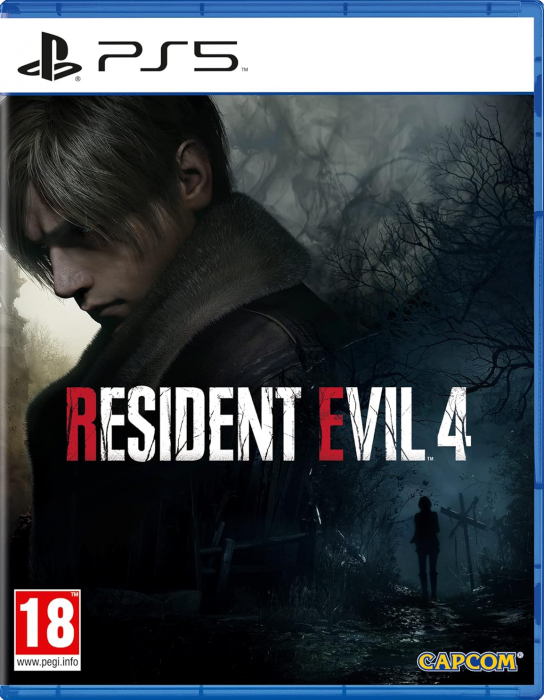
Story
The Setting
Pros
- A highly detailed, reimagined world
- Impressive textures and atmosphere
- Engaging revisions of iconic characters
- New gameplay mechanics
- Expanded backstory and lore
- Tighter narrative and improved dialogue
Cons
- Dead zone for Xbox controls
- Some image artifacting
- Underwhelming boss fights
The main story of Resident Evil 4 has always felt somewhat more self-contained than the others in the franchise. As opposed to fighting zombies infected with bioweapons that are explicitly linked to the evil corporation known as Umbrella, our protagonist Leon S. Kennedy is faced with a mysterious outbreak of Plagas in the ramshackle village of Valdelobos, located in a mountainous region of Spain. The village has been culturally isolated from the rest of Spain for some time, and it would be easy to assume upon first impressions that it had never developed beyond the medieval period.
This otherwise bucolic setting has a dark secret vaguely associated with the occult, something which Leon will begin to slowly uncover as he progresses with his mission; to rescue Ashley, the daughter of the President of the United States, who has been kidnapped and brought to the area. All of this will be familiar to those who have played the original RE4, but even they will be pleased to know that this remake expands on the lore in meaningful ways, while changing small elements but retaining the core narrative of the game.
Revised Characters and Expanded Lore
The form in which most of these changes are experienced is through the small notes that can be found in each chapter. An observant player can glean a lot from these, including greater depth to the history of the Plagas, with more detailed descriptions of how the parasitic arthropods manipulate their hosts. However, you’ll also see significant changes to side characters such as Luis Sera, Chief Bitores Méndez, Ada Wong, and Jack Krauser. The camp extravagance of Ramón Salazar has also been enhanced, with his depiction resembling something more like a frankensteinian merge of Margaret Thatcher and a US founding father.
The camp extravagance of Ramón Salazar has also been enhanced, with his depiction resembling something more like a frankensteinian merge of Margaret Thatcher and a US founding father.
Meanwhile, the ultimate baddie in the form of Lord Osmund Saddler has been given a more serious interpretation, in contrast to the overt theatrical nature of his presentation in the original. The plot is altogether less explicit, and leaves any new players continually guessing the motives and intentions of key characters, which greatly improves the pacing and sense of mystery. The dialogue is far more subtle in this remake, bringing it more in line with modern sensibilities and expectations for games to be just as effective (if not sometimes moreso) as any other medium for storytelling.
The revised Ramón Salazar.
More Fun, More Context
With all that said, the remake doesn’t abandon its sense of trivial fun in the form of repeated encounters with the Merchant, who now has more variety in dialogue than the original, but still keeps some classic lines. The Merchant provides a welcome break from regular gameplay which serves not only to provide you with an opportunity to resupply and improve your combat experience, but also to introduce a change of pace and tone to the story. The Shooting Range challenges have been made far more glitzy, with the dull villager targets being transformed into pirates, and the friendly-fire representations of Ashley now being sailors. The soundtrack is also more engaging here, making the whole experience feel like a theme park excursion in the middle of a horror show. But don’t be fooled: the challenges can be tough to master even for the most dedicated players.
In terms of cutscenes, there is almost nothing that is repeated from the original game. Instead, each scene has been reimagined with far more detail and nuance, and some characters (such as Luis Sera) have had their role significantly expanded in the narrative. The main characters retain their core attributes, but there’s a general sense of more depth and intrigue to their personal story. I even found myself sympathizing with many of the zombified villagers, knowing that their initial good nature was exploited by the Los Iluminados cult, and the spirit of a previously thriving community now bent to the perverse will of their leader. Even so, perhaps the greatest achievement of the remake is that you now find yourself thinking more about the underlying cause for all this: the Plaga itself. Knowing more about the intricacies of how they function enriches the lore and complements the underlying horror of the story.
(1 of 2) You can now do more with the Merchant than ever before.
You can now do more with the Merchant than ever before. (left), The requests you complete earn you currency which can be exchanged for exclusive rewards. (right)
Gameplay and Mechanics
The refinements to the story, characters, and setting also serve to enhance general gameplay as you make your way through each chapter. The pace of the story now feels more natural, although you will still have to suspend your disbelief as you wonder what certain characters get up to when they abruptly leave so that you can conveniently press on with the matters at hand. But we’re not exactly playing Resident Evil games primarily for the tightness of the narrative, that’s just an added bonus which the remakes have brought to them. We’re here to neutralize absurd existential threats, rescue innocents, and have some fun with firepower and explosives along the way. The RE4 remake provides all that and more.
New Mechanics!
The RE4 remake comes with a number of new mechanics which fit nicely with modern gaming expectations for a good combat experience. Perhaps one of the most significant which might be overlooked by those who didn’t play the original is the ability to move while you shoot. This might sound fairly underwhelming at first, but it actually allows for more diversity in encounters with enemies, since you can now kite them around objects to avoid their attacks or hold them off as you retreat from an area. This is essentially a required feature for the remake, as the new take on enemies tends to make them more aggressive in their pursuit of Leon and Ashley.
In addition to moving while shooting, there are three other major changes to the combat mechanics worth noting. These are stealth kills, crouching, and parrying. The stealth kills are self-explanatory: you can now sneak up to most enemies and perform a stealth attack with your knife, which will often kill regular enemies in one hit and allow you to keep a low profile while crouching. The parrying mechanic makes melee combat much more engaging, especially with tough enemies. You can use your knife to parry most melee attacks, even from chainsaws, and you’ll need to get the timing right for it to be effective. However, your knife won’t last forever as each parry consumes some of its durability, so it’s not a mechanic that can be abused. Oh, and you can’t parry any enemies that attempt to grab you!
Leon has more weapons at his disposal, and new combat mechanics improve the experience.
Combat and Weapons
One of the most significant improvements to the overall gameplay experience in this remake comes from changes to the way weapons look, feel, and sound. There are over 30 weapons and weapon attachments to choose from, although some of these will be locked out of your first playthrough, such as the Primal Knife which can only be obtained after shooting all 16 Clockwork Castellans. There are still plenty to choose from as you progress through the chapters, and new weapons are often introduced just when you feel like you might want to experiment a bit more. Most of these can be purchased from the Merchant, but others are found in specific chapters. In general, you’ll always want at least one handgun, one shotgun, one rifle, and perhaps one other weapon based on preference.
I personally stuck with the Red 9 Pistol, W-870 Shotgun, and SR M1903 Rifle throughout most of my playthrough, partly for the convenience of not having to bother with carrying or upgrading other guns, but also because I just so happen to enjoy the way they sound and feel. The SR M1903 Rifle is particularly satisfying to use as you kill most enemies with a single headshot, and you can attach various scopes to it if preferred. You can only carry 3-4 weapons in your inventory at any given time, since the Attache Case size confines you to the essentials, but if you were to change your mind about a weapon later on, you can sell any that you’ve invested upgrades in for the same price that you’ve spent on it so far. This is a great system because it allows you to switch to a new weapon without having to wait before you can upgrade it to the same level as the old one, so experimenting is encouraged in this regard.
New Enemies and Improved AI
In general, you should find no shortage of options when it comes to eviscerating your enemies in different ways, and the improved crafting / upgrade system never feels like a chore to use. Tearing through hoards of villagers or eating away at tough brutes is at the core of this game, and you’ll see real improvements in how effectively you can deal with them as your gear is enhanced. The experience of encountering iconic enemies from the original game has also been revisited, such as when and where you fight the Garrador. The first encounter provides you with much less space, and the AI is noticeably more adept when it comes to locating you.
There are some new spider-like Plagas enemies which are uniquely terrifying once they attach themselves to a host. Learning how to quickly dispatch each type of threat is crucial to your survival, and becoming more proficient at it feels rewarding.
With that said, this is by no means an excessively difficult game when it comes to combat encounters. Most of the main boss fights provide fun spectacles which serve a purpose in the story, but they tend to leave you feeling underwhelmed by the lack of a challenge. The menacing Bitores Méndez, for example, quickly becomes forgettable after his brooding persona is overshadowed by the absurd Scorpion-like appendages “gifted” to him by the Plagas, a form which he instantly embodies at the beginning of the fight. Arguably, it would have been more effective for him to have a phase during which his sinister human form takes initial precedence in a genuine combat encounter, but this may be entering the realm of nitpicking.
There are new elite enemies to contend with, such as the Bull Head Brute.
The main boss fights may not provide much of a challenge, but the overall enemy variety in the game is excellent, and it forces players to use different tactics in specific situations. You won’t always be able to run directly into the path of particular elite enemies, but the combat meta of staggering most regular foes before finishing them off with a melee attack is still present. You will need to make more use of your combat knife to finish enemies off before they return in more powerful forms, and there are some new spider-like Plagas enemies which are uniquely terrifying once they attach themselves to a host. Learning how to quickly dispatch each type of threat is crucial to your survival, and becoming more proficient at it feels rewarding.
Although the enemy AI is sometimes lacking in terms of providing memorable boss fights, players of the original game will be pleased to know that the AI for Ashley is much Improved. She will no longer stand in front of your shots or mindlessly run into a group of enemies. You now have the ability to control her movements to some extent, insofar as you can ask her to stay back while you deal with a specific fight, or stay close as you run through a dangerous area. Ashley will also help you more when it comes to navigating puzzles or accessing otherwise locked areas, so she often feels genuinely useful to have around.
Side Quests and Castellans
There are now more things to keep you busy outside of progressing through the story of the game. You have the Clockwork Castellans which you need to locate in each chapter, but also a bunch of Requests (read: side quests) which you can obtain by finding blue notes, often located near the Merchant. These notes will give you a synopsis of the request, which can range from eliminating a number of rats in a specific area, shooting Blue Medallions which are hidden in overlooked places, obtaining specific items such as a golden chicken egg, or fighting tough enemies referred to as “strong threats”. Some of these requests also fit into the story for the specific chapter that you find them in, but we won’t spoil the details!
The reward for completing these requests comes in the form of Spinel, a currency which can be used to trade for things with the Merchant that can’t otherwise be purchased with regular money. This system offers a number of unique items ranging from weapons to attache cases, and exclusive upgrade tokens for your weapons. You can also trade them for treasure maps in different regions, which once purchased will allow you to see the location of all treasure items in the area on your map. The requests are well worth doing if only to help you earn money, but especially if you want to ensure that you’re not missing anything in each chapter.
Replayability and Customization
The Resident Evil series has gained many loyal fans over the years, and with good reason. It’s no surprise then that this remake doesn’t neglect the replayability value of the game after the first playthrough. In fact, most players will need to complete the game two or three times before they can obtain all of the trophies. This might seem a bit excessive to most (including myself), but there are plenty of reasons to return for hardcore fans and speed runners. One of the most impressive features for the latter are the opportunities to skip specific encounters, such as the initial village and farm encounters, elite enemies, puzzles, and even entire sections of the story. Most linear games don’t allow for this level of freedom in manipulating scripted events, so it’s good to see that level of detail here.
There are hardcore and professional game modes for those who want to challenge themselves a bit more. These make some of the easy boss fights on normal mode much more difficult, especially on professional mode where there are no autosaves, and parrying is limited to perfect parries only. It isn’t all punishment and no reward, however. You gain access to two additional weapons in the Chicago Sweeper and Handcannon, and you’ll be able to modify all weapons from the start of the game in professional mode. If you’re a fan of costume design or just addicting to obtaining all unlockables, you’ll also gain access to a number of new outfits and accessories for Leon and Ashley after completing the game, with even more rewarded for completing it on higher difficulties.
Graphics and Sound
Character Models and Textures
Overall, the graphics and sound design for this remake greatly improve on the original, as you might expect for any game using a far superior engine that has now been substantially polished. We played the PC and PS5 versions of the game, and experienced no significant bugs to report. Unfortunately, as of the writing of this review, the Xbox version has a large dead zone which interferes with responsiveness of the controls on that platform, which is frankly inexcusable for a full release title. There are also some relatively minor image quality issues with noticeable aliasing and shimmering of objects, but the impressive texture details and greatly enhanced atmosphere make up for these shortcomings. The character models in particular are awash with textures and subtle animations which go a long way to bringing the classic characters of Leon and Ashley to life.
Greatly improved textures bring the iconic characters to life.
Speaking of character models, the presentations of each have been altered to such an extent that the original characters almost feel like strangers by comparison. All of the characters are much more expressive, able to convey subtle emotions without words in ways which just weren’t possible in the original game. Ashley is more mature with new designs for her hair and outfits, while Ramón Salazar has almost been completely reimagined, as mentioned earlier. I especially enjoyed his scenes and would’ve loved to see more of that deliciously hateable mush.
New Voiceovers
The new designs for all of the characters provide a fresh take on their personalities, as do the voiceovers. These reinterpretations have been generally well received, although the more significant changes to Ada Wong have been somewhat controversial. Some have expressed anger at the perceived inappropriateness of her voiceover, referring to it as excessively disaffected or even boring.
Personally, I like the new take as it seems to fit with her general demeanor as someone who enjoys portraying a flippant or blasé exterior, while hiding from deeper emotions that she apparently considers a weakness. I could be reading too much into this, but that’s all part of the fun, right? There’s always room for differing opinions and constructive criticism, but discontent with the performance of an individual should never lead to their personal abuse. We can and should be better.
The revision of Ada Wong’s character has been controversial, but not to all.
Atmosphere and Immersion
Outside of reinventing familiar characters, the remake does an incredible job of making the world feel much more coherent and immersive. There’s a real sense that the village has a direct connection to the castle, and the castle to the island, as you can now move throughout the various regions of the village to explore and revisit it seamlessly. You’ll still be locked out of one main region (Village, Castle, Island) once you reach the next, but everything within each main region feels more connected.
The story is tighter, the tone of the dialogue more fitting and relevant, and the lore has been greatly expanded with clever tweaks and fine attention to details.
Resident Evil 4 was never among the scariest of games, partly due to the slightly less creepy and more humanlike enemies, but also because the graphical fidelity and sound design tools available to the developers was more limited when making the original. The remake still doesn’t compare with the sheer terror factor that something like the recent Dead Space remake provides, but the enhanced indirect lighting and overall darkening of atmospheric features go a long way to making it considerably more creepy. The scenes at night are more tense as a result, but daytime scenes such as the classic opening sequence in the village square still feel more like a disturbing folk tale than a zombie apocalypse.
The new indirect lighting dynamics greatly enhance atmosphere and immersion.
The least that anyone might expect to see from the remake of an old game is improved graphics and sound design. The Resident Evil 4 remake provides this in abundance, and so much more. It’s no exaggeration to say that this is a gold standard for remakes. It feels like a complete reimagining of the original game, with not a whiff of the all too familiar “cash grab” in the air. The story is tighter, the tone of the dialogue more fitting and relevant, and the lore has been greatly expanded with clever tweaks and fine attention to details. The game also feels like it belongs in 2023, with an impressive overhaul of key gameplay and mechanics. After the sore disappointment with the Resident Evil 3 remake for many players, this one feels like a return to form. A classic game which was genuinely innovative for its time has been given the love and care that it deserves.
A superb remake
The Resident Evil series has been esteemed by fans for many years, so any attempt at a remake for one of its most beloved titles will inevitably be met with high expectations and near febrile anticipation. The remake of RE2 set a high bar, and by most accounts the RE3R fell far below it. We’re happy to report that the remake of Resident Evil 4 represents a return to form, and even sets a gold standard for any remake of a classic game.
Gameplay:
Sound:
Graphics:
Story:
Value Rating:

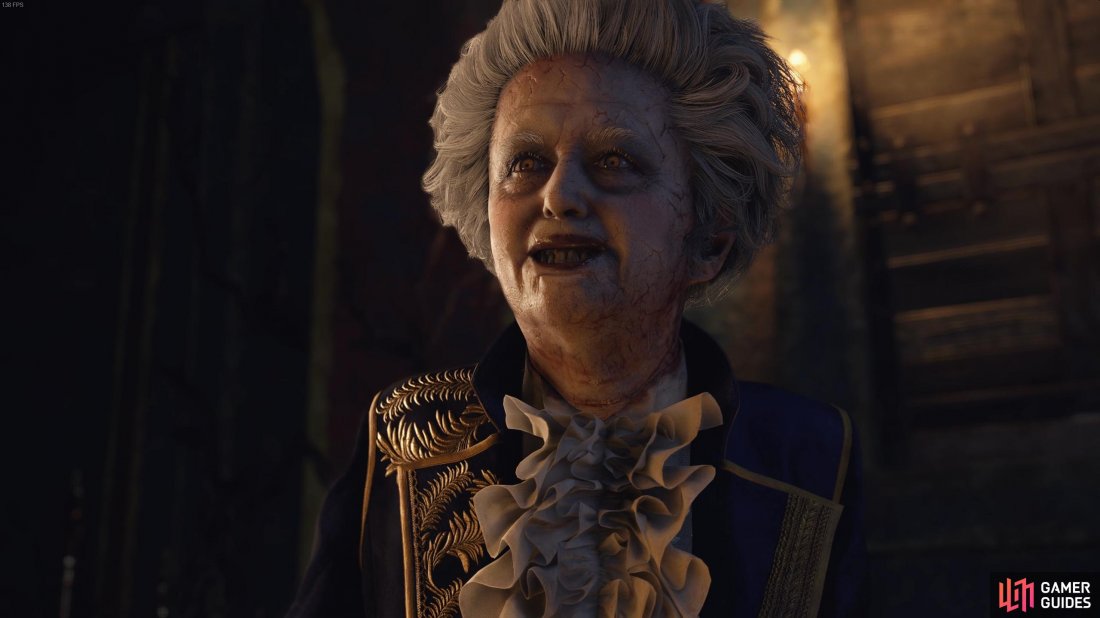
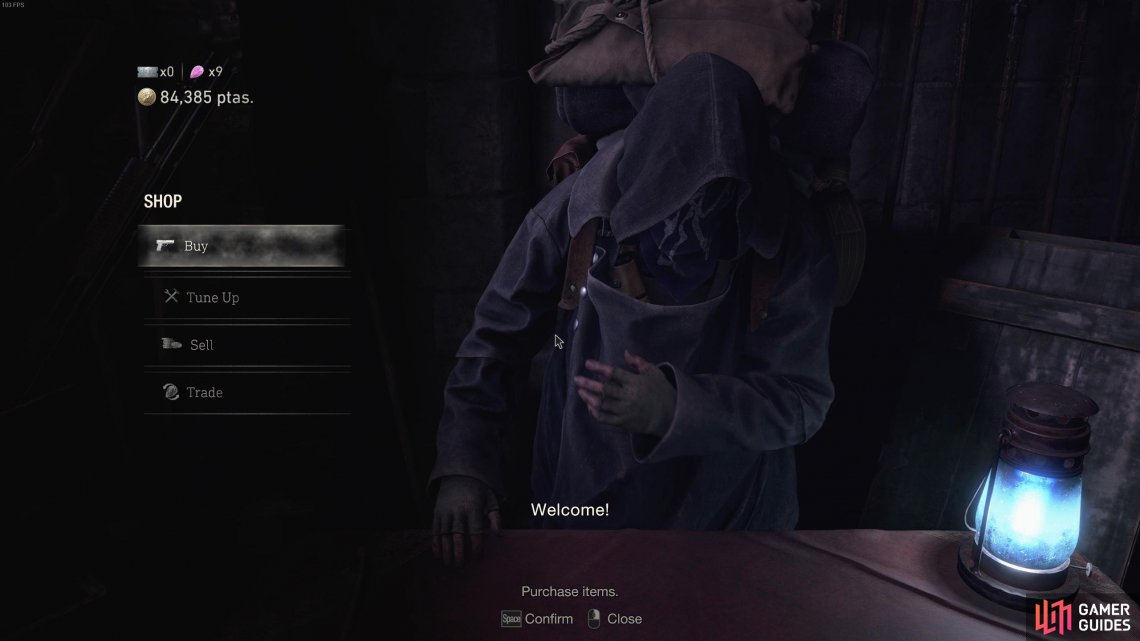




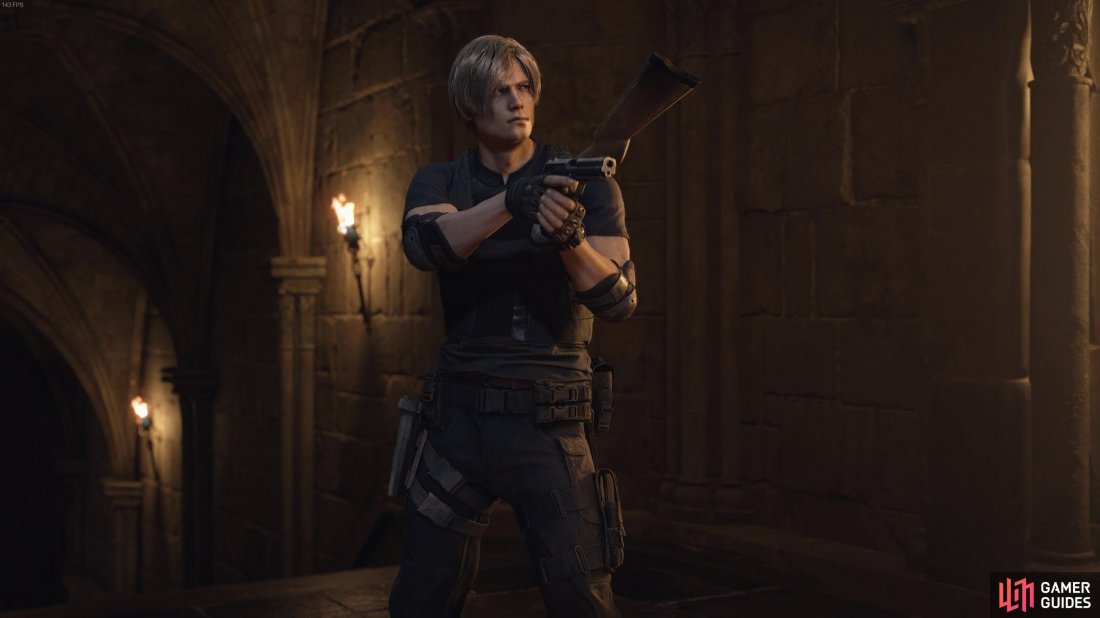
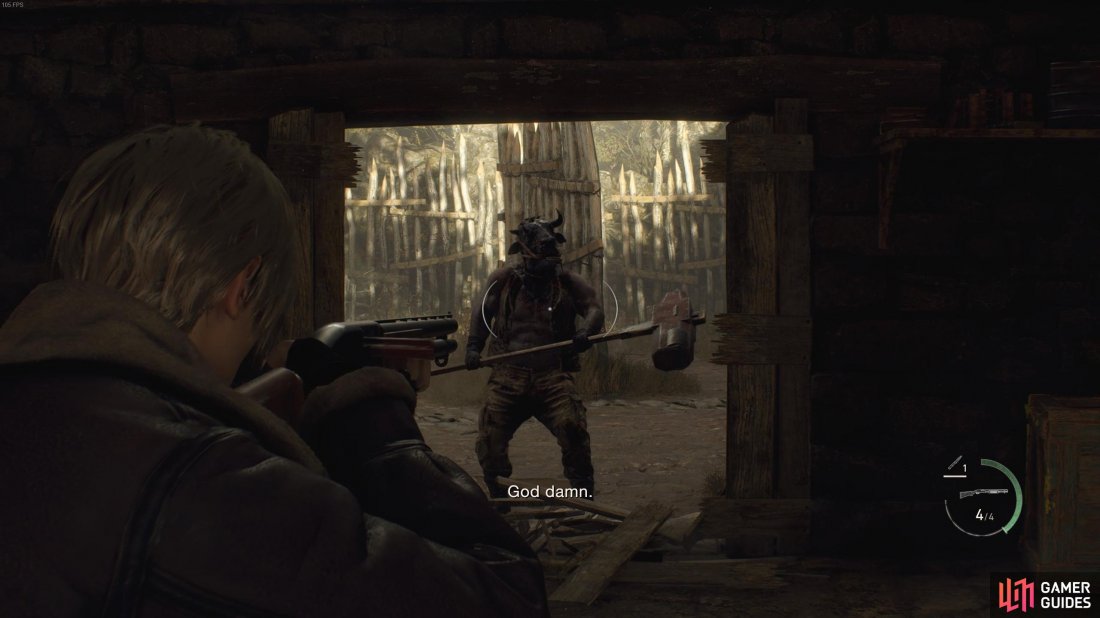
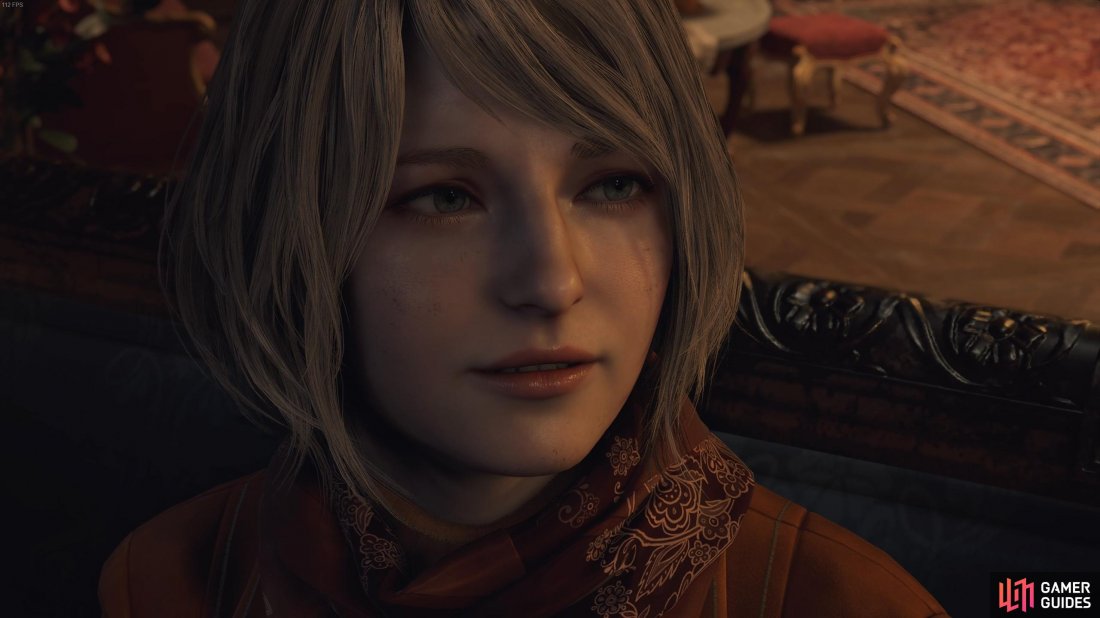
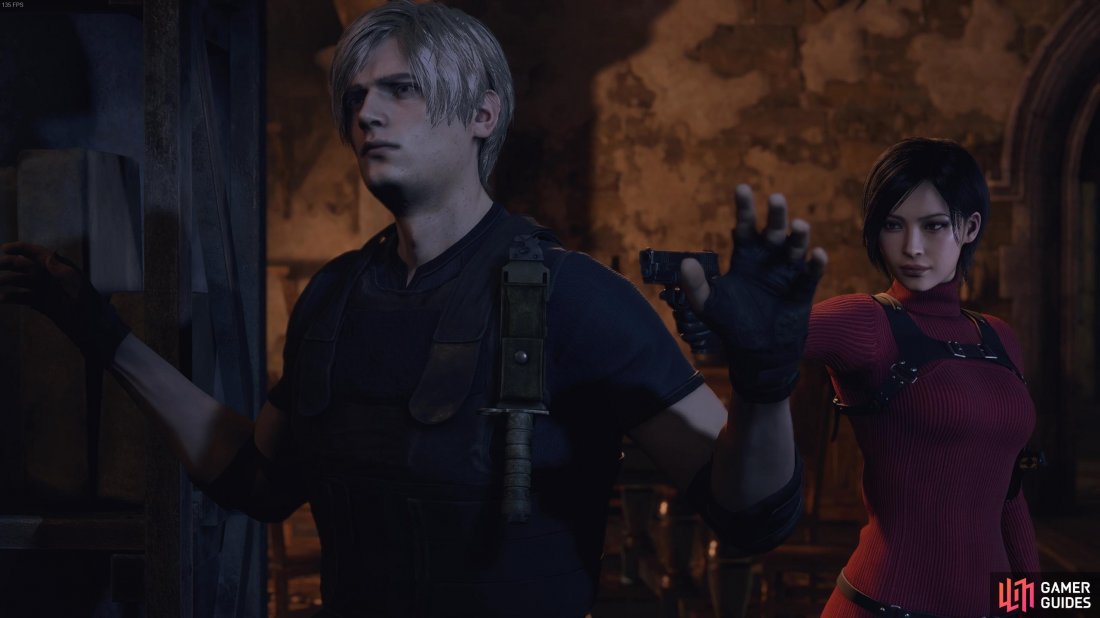
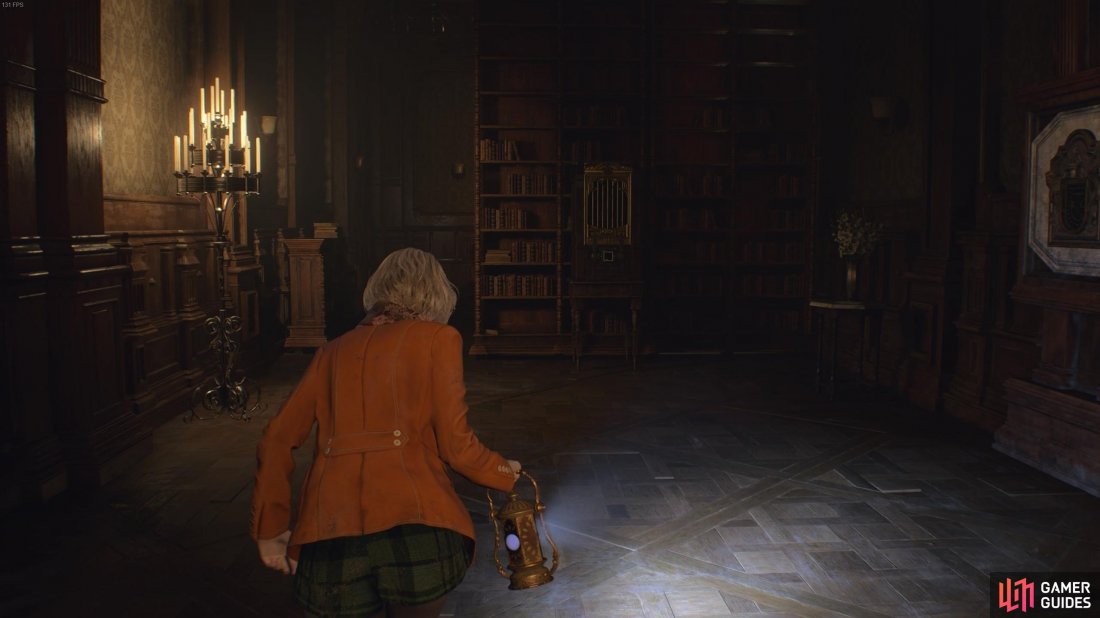
 Sign up
Sign up
No Comments